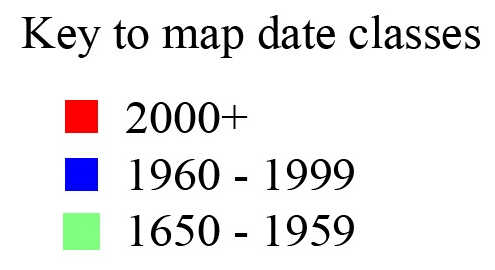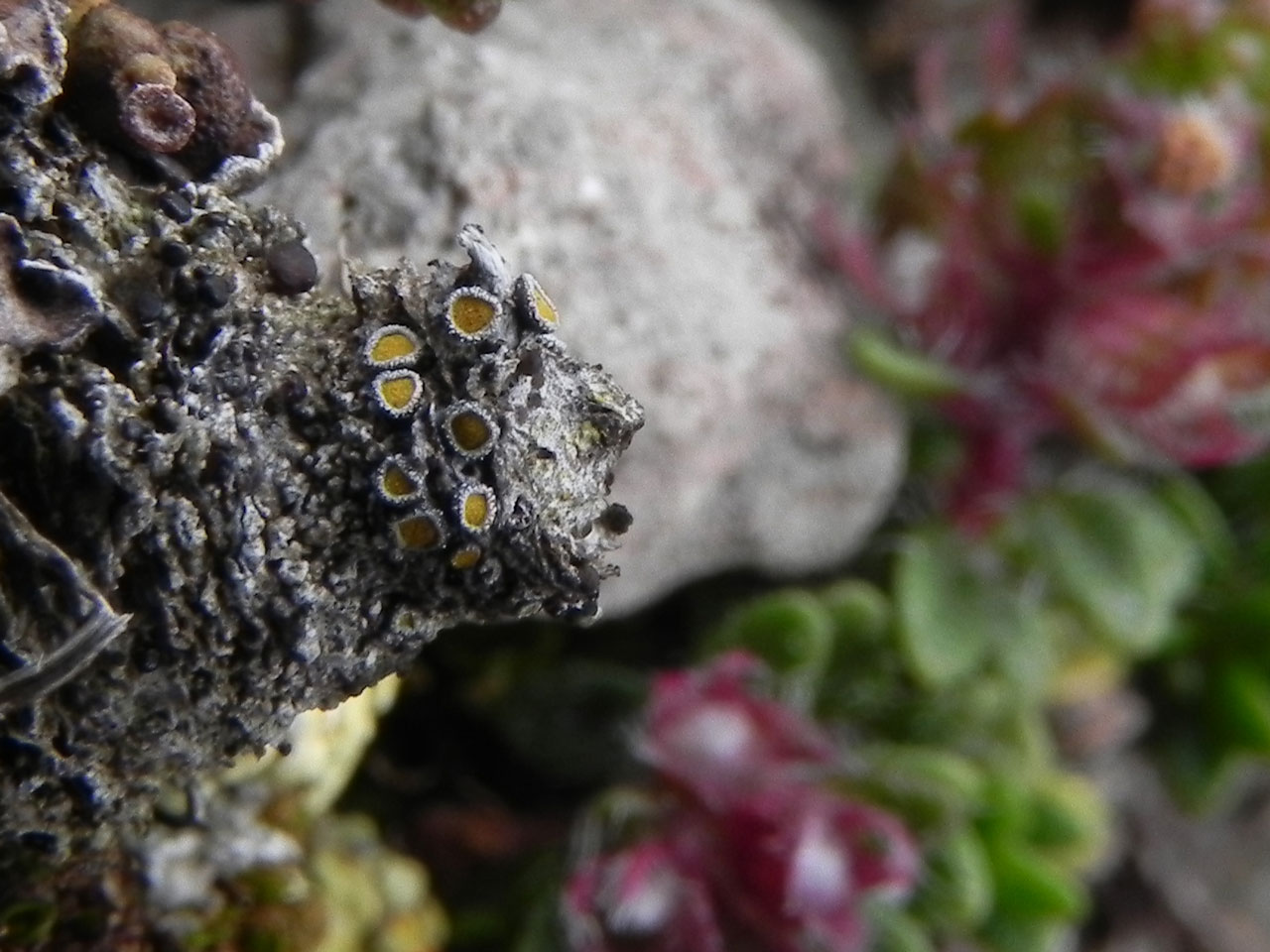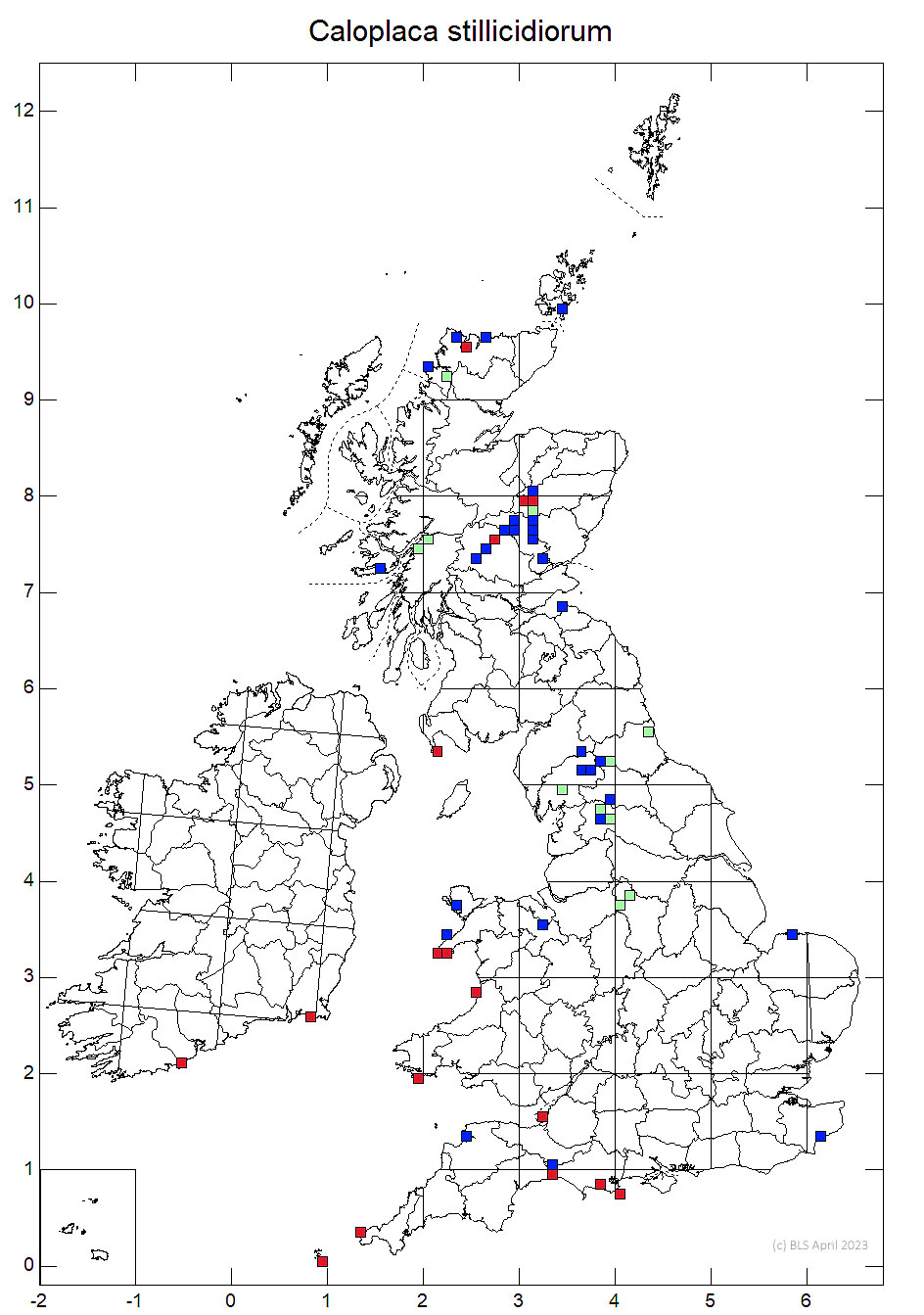Caloplaca stillicidiorum
A tiny jewel of a lichen, similar to Caloplaca cerina, found rarely overgrowing mosses and dead vascular plants on calcareous soil in open communities on upland and coastal grasslands. Few recent records and possibly seriously declining.
Similar to Caloplaca cerina but with a scurfy green-grey thallus, and apothecia with thick grey somewhat flexuose thalline margins, and a flat, often green, pruinose disk. K reactions as for C. cerina. The ascospores are sometimes stated to be slightly longer than C. cerina, but this needs to be further tested by careful measurement.
A variable species that appears to be monophyletic (Šoun et al. 2011), but with multiple ITS haplotypes that may indicate cryptic speciation. More data are needed to elucidate these possible taxa and to draw a clearer distinction between C. stillicidiorum and C. cerina.
Overgrowing mosses and dead vascular plants on calcareous soil, rarely extending onto limestone or calcareous schistose rock.

Scarce, inland N. Pennines to Scottish Highlands and Islands, with more southern coastal populations.
Not assessed as threatened in 2012, but the lack of recent records and the vulnerability of small terricolous lichens to vegetation overgrowth suggests it may now be threatened.
Britain: Notable
Wales: Data Deficient
Cannon, P., Arup, U., Coppins, B., Aptroot, A., Sanderson, N., Simkin, J. & Yahr, R. (2024). Teloschistales, including Brigantiaea (Brigantiaeaceae), Megalospora (Megalosporaceae) and Amundsenia, Athallia, Blastenia, Calogaya, Caloplaca, Cerothallia, Coppinsiella, Flavoplaca, Gyalolechia, Haloplaca, Huneckia, Kuettlingeria, Leproplaca, Marchantiana, Olegblumea, Polycauliona, Pyrenodesmia, Rufoplaca, Rusavskia, Sanguineodiscus, Scythioria, Solitaria, Squamulea, Teloschistes, Variospora, Xanthocarpia, Xanthomendoza and Xanthoria(Teloschistaceae). Revisions of British and Irish Lichens 43: 1–75.
Šoun, J., Vondrák, J., Søchting, U., Hrouzek, P., Khodosovtsev, A. & Arup, U. (2011). Taxonomy and phylogeny of the Caloplaca cerina group in Europe. Lichenologist 43: 113–135.
Text by Neil A Sanderson based on Cannon et al (2024)

